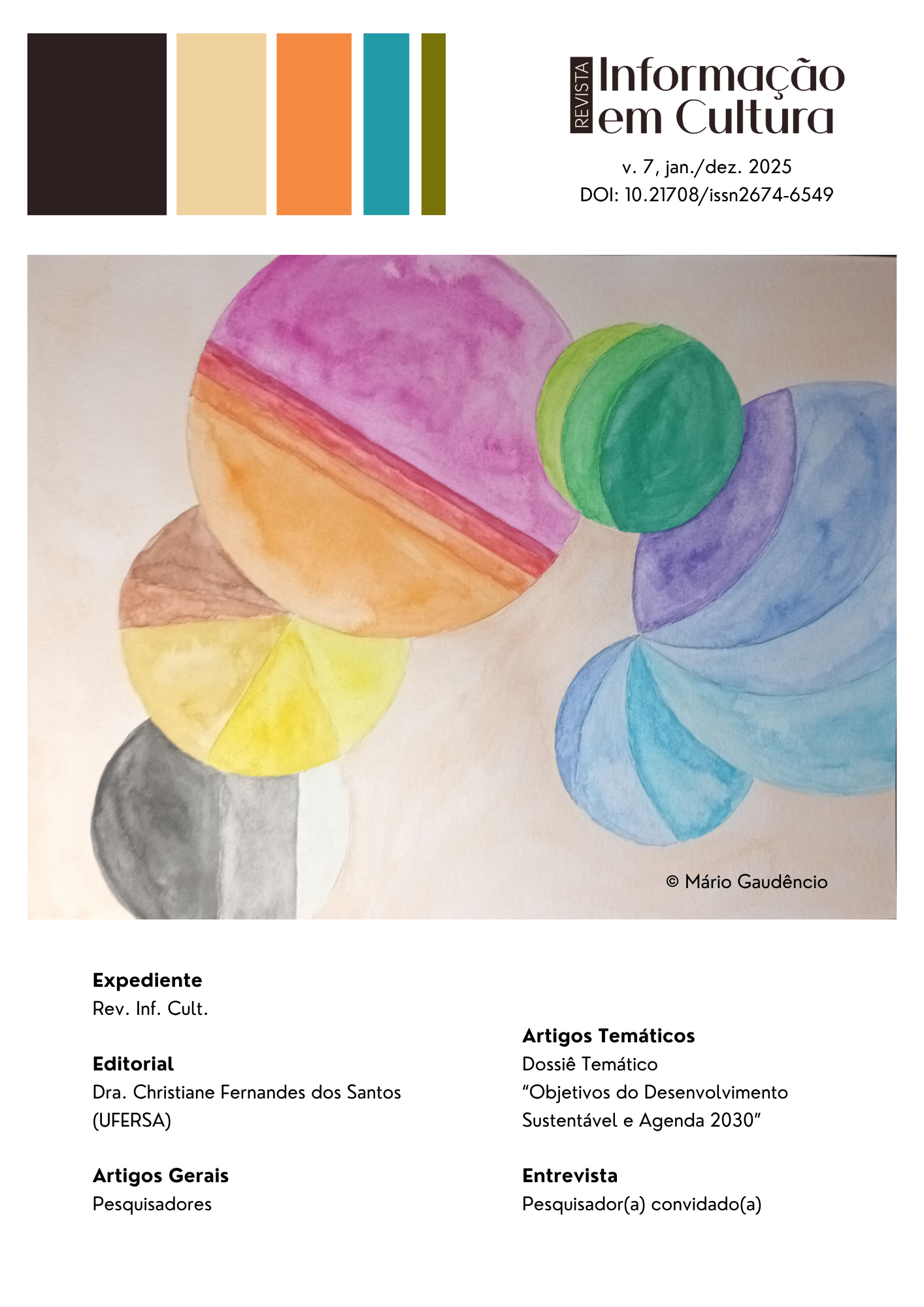Uma Construção pelos vencidos
a biblioteca popular e comunitária tecendo memória e resistência
DOI :
https://doi.org/10.21708/issn2674-6549.v7e139382025Mots-clés :
Biblioteca Comunitária, Biblioteca Popular, Biblioteca pública, Memória, Biblioteconomia Social, Community library, Popular library, Public library, Memory, Social library scienceRésumé
Português
Este artigo, construído a partir de uma pesquisa bibliográfica, reflete acerca dos tensionamentos da memória, convocando uma perspectiva da memória histórica das experiências zapatistas, expressas no trabalho de Sebastião Vargas Netto (2007, 2011). O texto convoca, ainda, o conceito de Benjamin (1987), elaborado em suas teses sobre história, questionando a história como uma disciplina marxista e antiprogresso irresistível, de uma base messiânica judaica e materialista. Estabelece uma relação com a biblioteca popular e comunitária – criada e mantida pelo povo – e sua produção de memória, fenômeno fundamental para a construção de uma outra história. Busca responder a seguinte questão: de que maneira a Biblioteconomia pode contribuir para o uso da memória como categoria de emancipação da sociedade? Tem como objetivo discutir a biblioteca comunitária e popular como dispositivo de organização, disseminação e construção da memória dos oprimidos, com vistas à transformação social. A biblioteca comunitária deve assumir, então, uma postura crítica diante dessa conjuntura, ao passo que representa uma potente ruptura com o pensamento conservador dentro do campo da Biblioteconomia e da Ciência da Informação. Conclui que o entrelaçamento da biblioteca comunitária como dispositivo de retomada das narrativas dos explorados, contrapondo-se radicalmente ao modelo neoliberal de mundo, é um caminho necessário e urgente a ser trilhado para uma construção comunitária mais efetiva e aberta ao diálogo com vistas à transformação sócio-histórica.
Inglês
This text, constructed from bibliographical research, reflects on the tensions of memory, calling for a perspective of the historical memory of the Zapatista experiences, expressed in the work of Sebastião Vargas Netto (2007, 2011). The text also calls upon Benjamin's (1987) concept, elaborated in his theses on history, questioning history as a Marxist and irresistible anti-progress discipline, with a Jewish and materialist messianic base. It establishes a relationship with the popular and community library – created and maintained by the people – and its production of memory, a fundamental phenomenon for the construction of another history. It seeks to answer the following question: in what way can Library Science contribute to the use of memory as a category of emancipation in society? Its objective is to discuss the community and popular library as a device for organizing, disseminating and constructing the memory of the oppressed, with a view to social transformation. The community library must therefore adopt a critical stance in the face of this situation, as it represents a powerful rupture within the field of Library Science and Information Science with conservative thinking. It concludes that the intertwining of the community library as a device for reclaiming the narratives of the exploited, radically opposing the neoliberal model of the world, is a necessary and urgent path to be followed for a more effective community construction that is open to dialogue with a view to socio-historical transformation.
Téléchargements
Téléchargements
Publié-e
Comment citer
Numéro
Rubrique
Licence
(c) Tous droits réservés Licenças Creative Commons 2025

Cette œuvre est protégée sous licence Creative Commons Attribution - Partage dans les Mêmes Conditions 4.0 International.





